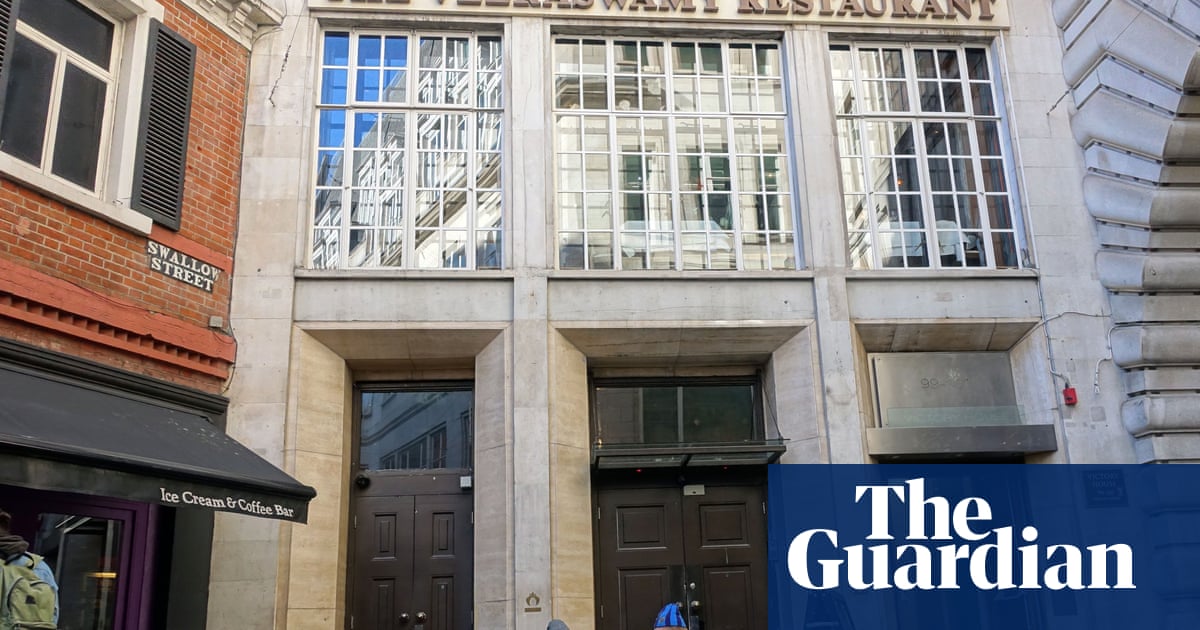It has been a fixture of British-Indian dining since it first opened its doors in April 1926 on the day of Elizabeth II’s birth, serving guests over the decades ranging from Marlon Brando to the late Queen herself.
Yet despite surviving the Blitz and London’s relentlessly competitive restaurant sector, a dispute with the current monarch’s property developer threatens the survival of London’s oldest Indianrestaurantjust short of its 100th anniversary.
Thecrown estate, which owns Victory House, the listed building housing the Michelin-stared Veeraswamy restaurant near Piccadilly Circus, has said that it cannot continue to extend its lease against the backdrop of plans to refurbish and upgrade offices in the same property.
Veeraswamy’s co-owner Ranjit Mathrani is now heading to the high court to attempt to have the lease extended. He intends to lodge objections to the plans.
Mathrani is also sure that the royal family would be unhappy to hear what is being done in their name to a restaurant long regarded as the grand dame of British-Indian food.
He said: “They believe in history, in living history, and that’s what this restaurant is. It’s not just a museum, and I think they would be disappointed that an institution bearing their name would be so heartless.”
At lunchtime on Monday, diners waxed lyrical about the restaurant’s heritage and current menu, which includes classics such as patiala shahi raan en croute, a Welsh lamb shank slow-cooked for six hours before being wrapped in pastry and grilled in a tandoor.
The same menu includes photos of its historical equivalents, which included wartime offerings of lobster mayonnaise, jugged hare and sherry trifle. While the fare has evolved and sought to keep pace with modern British-Indian cooking, celebrity guests have remained constant.
One diner said: “It’s just a really lovely place and for as long as I can remember there’s always been a sort of excitement about it. It was a few years ago but I can remember coming here and the Prince of Wales was in another part of the restaurant. They had curtains drawn but there was a buzz.”
Established in 1926 by Edward Palmer, the great-grandson of the first governor general of India’s private secretary and a north Indian Moghul princess, the restaurant was intended to “educate” Londoners about Indian food decades before the era of celebrity chefs. It was sold in 1934 to an MP, Sir William Steward, who made it a fashionable rendezvous among royalty and British elites returning from India.
After a period of decline in the 1980s, it was bought by Mathrani and Namita Panjabi, who poured resources into recreating its past glories. In 2008, the restaurant catered for a function held by Queen Elizabeth II at Buckingham Palace and it was invited back to launch the UK-India 2017 Year of Culture. In 2016, it was awarded a Michelin star.
Nevertheless, modern commercial motivations are now a factor in its future. The crown estate, the royals’ ancient portfolio of land and property across England and Wales, wants to take back the restaurant because it plans to extend a ground-floor reception area for offices upstairs in the building that houses Veeraswamy. Knocking into the restaurants’s entrance area, where a uniformed usher greets visitors, would give an extra 11 sq metres.
The crown estate said in a statement issued this week that it needed to carry out a comprehensive refurbishment of Victory House.
“This includes a major upgrade to the offices and improving the entrance to make it more accessible,” it added. “Due to the limited options available in this listed building we need to remove the entrance to the restaurant, which means we will not be able to offer Veeraswamy an extension when their lease expires.”
